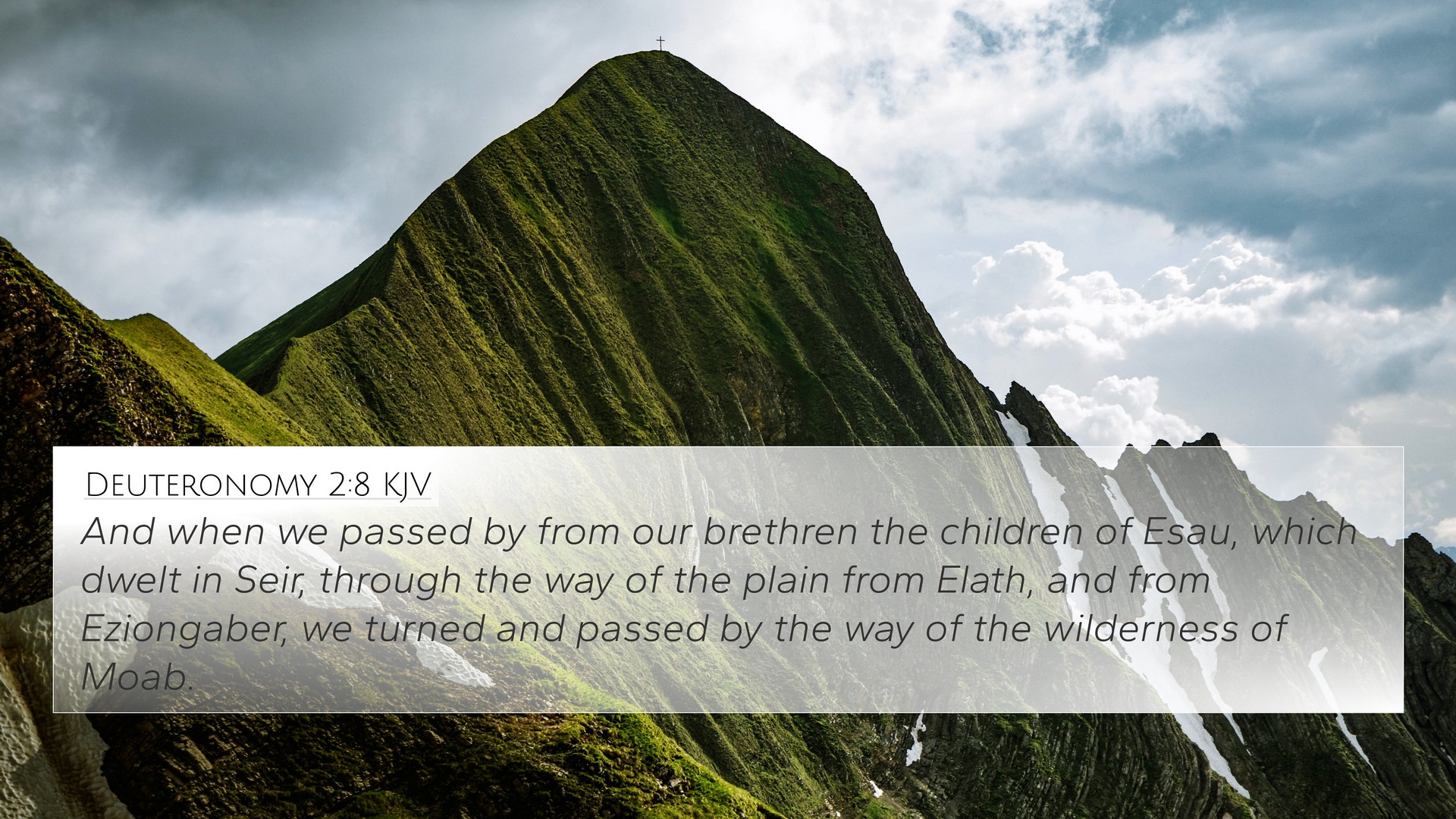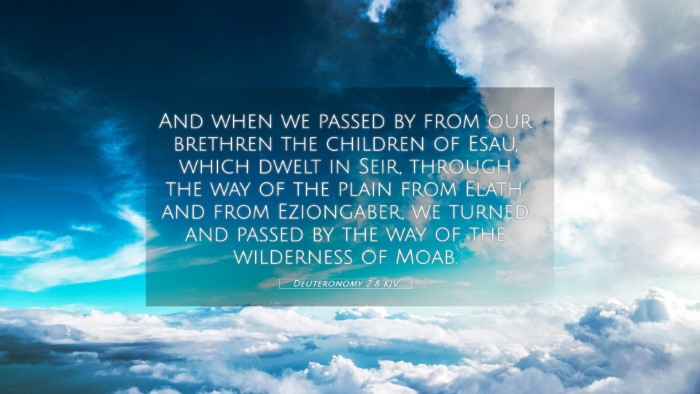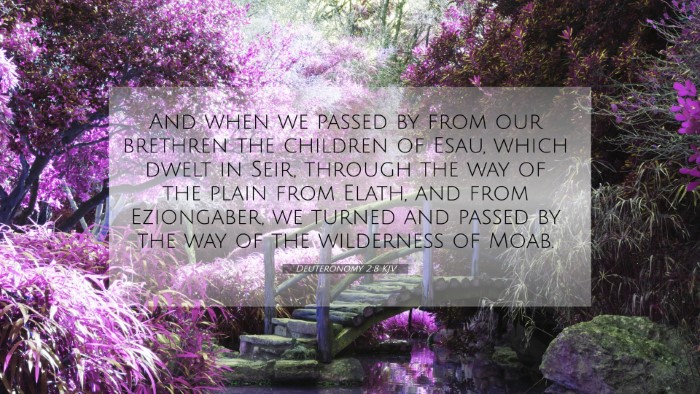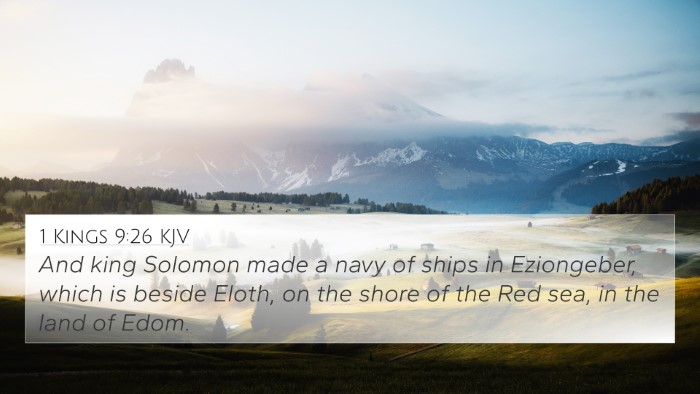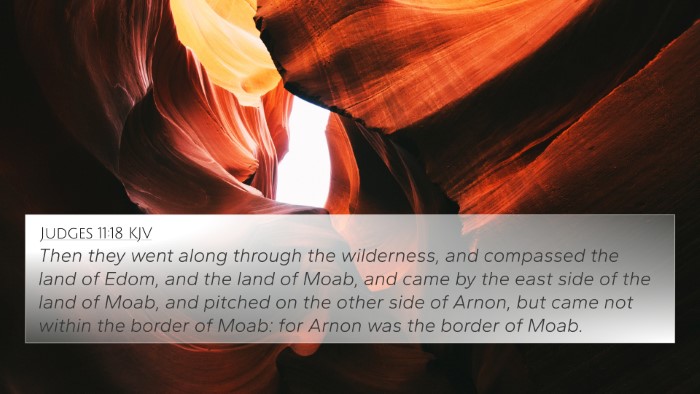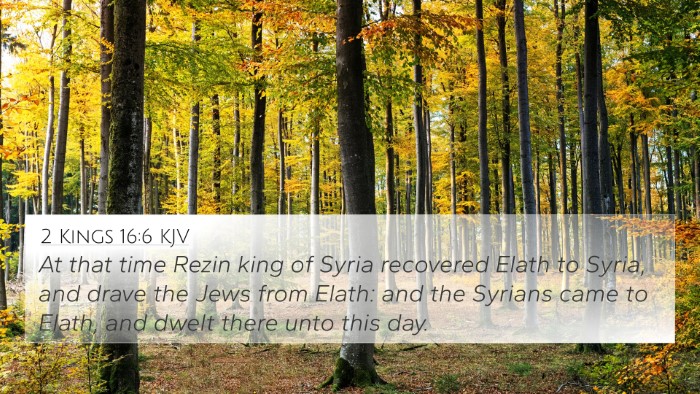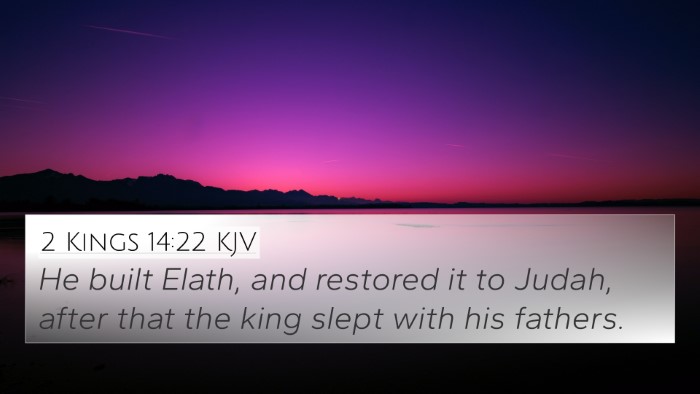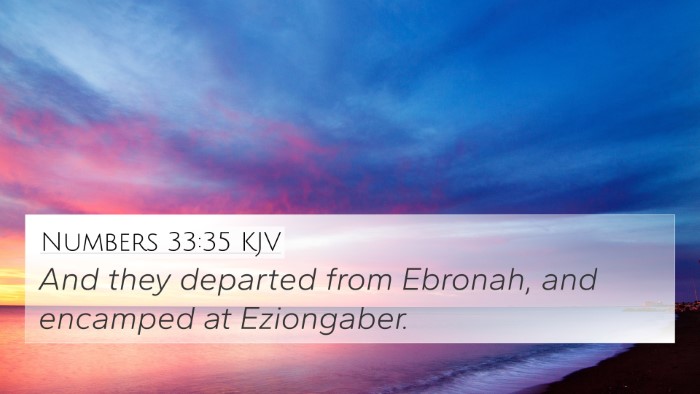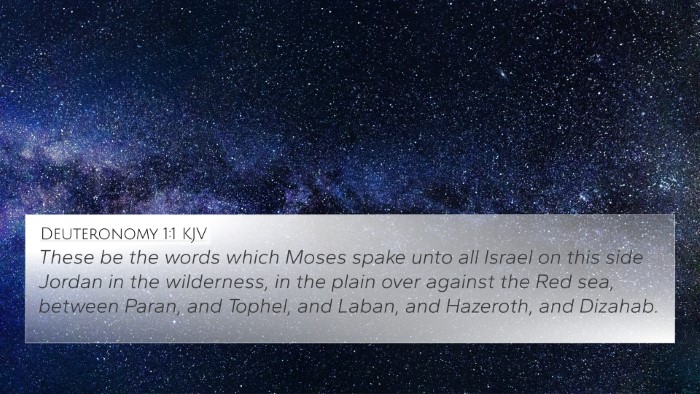Understanding Deuteronomy 2:8
Deuteronomy 2:8 states: "So we passed by from our brethren the children of Esau, which dwelt in Seir, through the way of the plain, from Elath and from Eziongaber, and we turned and passed by the way of the wilderness of Moab." This verse captures a significant moment in the wilderness journey of the Israelites, highlighting their interactions with neighboring nations and their obedience to divine instructions.
Summary of Key Insights
- Journey Through Edom: The Israelites chose to bypass the land of the Edomites, descendants of Esau, demonstrating respect for their territory, as indicated in earlier verses.
- Divine Guidance: Their journey is marked by attentive movements under God's guidance, reflecting the importance of seeking divine approval.
- Historical Context: This passage situates the Israelites in a broader narrative related to familial and tribal relationships established through Abraham and Isaac.
- Symbolism: The detour represents the broader theme of trials and faith in the wilderness that necessitates patience and reliance on God.
- Lessons in Relations: The avoidance of conflict with neighboring nations underlines the importance of peaceful coexistence and divine direction.
Commentary Insights
The commentary insights from public domain authors such as Matthew Henry, Albert Barnes, and Adam Clarke provide deeper reflections on this passage:
Matthew Henry's Commentary
Henry emphasizes the calculated and obedient nature of Israel’s journey. By avoiding the land of the Edomites, the Israelites adhered closely to God’s command, which promoted peace. Their passage signifies the importance of careful navigation through life’s trials, often demanding patience and deference to others. The mention of specific locations also underlines that every step was under divine watch, showcasing God’s sovereignty over their path.
Albert Barnes' Notes
Barnes focuses on the geographical significance of the locations mentioned, indicating the Israelites’ strategic routing through areas already occupied. He notes that this journey is representative of the blessings of God in protecting His people while they face their struggles. This connection reflects the broader ethical responsibility in respecting the rights of others, as the Israelites could have forcibly traversed Edom.
Adam Clarke's Commentary
Clarke elaborates on the practical aspects of why the Israelites refrained from conflict with Esau's descendants. This respect manifests wisdom and can be applied to one’s life, emphasizing the significance of diverging from unnecessary disputes. Clarke further connects it to the overarching themes of covenant and heritage, reminding us that God’s promises guide our behavior and relationships with others.
Bible Cross References
This verse relates to several other scriptures that provide context and further teaching on the Israelites’ journey and God's instruction:
- Genesis 25:30-34: The relationship between Jacob and Esau, establishing their descendants' identities.
- Deuteronomy 2:5: God's directive not to provoke the Edomites, highlighting the theme of respect.
- Numbers 20:14-21: The Israelite request for passage through Edom, reflecting their diplomacy.
- Joshua 24:4: Reference to the land given to the descendants of Esau.
- Exodus 23:31: Emphasizing that God gives boundaries to different peoples.
- Isaiah 63:17: God's guidance is contrasted against human shortcomings in following divine paths.
- 1 Thessalonians 5:15: A New Testament principle about pursuit of peace with everyone.
- Proverbs 3:6: Encouragement to acknowledge God in all ways, aligning with Israel's journey.
- Psalm 37:23: The assurance that steps of a good man are ordered by the Lord.
- Acts 17:26: God's sovereign placement of nations and peoples, illuminating His control over their paths.
Thematic Connections in Scripture
The connections between these verses reveal a consistent biblical theme concerning divine guidance, respect for boundaries, and the importance of peace. By exploring these links, we gain insights into:
- The nature of God’s leading: How God directs His people in their paths based on His will.
- Respect among nations: Navigating relationships with wisdom and honor.
- Historical narrative continuity: Understanding how the story of God's chosen people unfolds across different contexts.
- Ethical living: Applications of biblical principles in current life challenges.
Tools for Further Study
For those interested in deeper study, a variety of tools can enhance your understanding of this and related Bible verses:
- Bible Concordance: A tool to locate specific words and themes throughout the Bible.
- Bible Cross-Reference Guide: Helps identify links between scriptures.
- Cross-Reference Bible Study: Methods for studying scripture in relation to one another.
- Bible Reference Resources: Various editions and formats for deeper understanding of the text.
This study demonstrates that Deuteronomy 2:8 is not just a geographical statement but a theological lesson embedded within a larger narrative, guiding believers in reflecting on obedience, respect, and the pursuit of peace. The messages intertwined within these verses resonate with contemporary readers as they navigate their spiritual journey.
